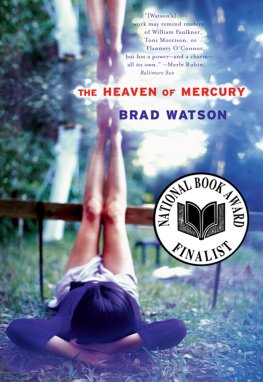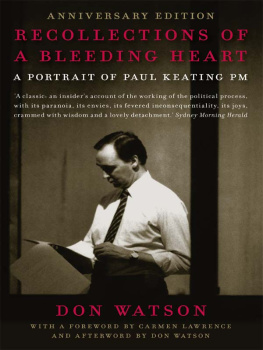The Flaxborough Crab
Colin Watson
Chapter One
Miss Brangwyn Butters, Flaxboroughs assistant Librarian, was thirty-six years old. She was healthy and had been described more than once as handsome. No one had ever declared her pretty. This did not worry her at all. She did not despise beauty, but she recognized that it could be more of a nuisance than an asset. From what she had heard of the conversation of the younger girls in her charge at the municipal library, it was clear that their concern with their good looks and with the attention they drew was by no means an entirely happy state of mind. Miss Butters saw nothing to be envied in a preoccupation with weighing machines and tape measures. Nor did she feel any sense of loss in being unable to share in that vapid, fragmentary, apparently endless discussion of cosmetics and fashion which was the girls sole intellectual exercise. The truth was, she told herself, that underneath their preening and chatter they were afraid.
Miss Butters was not afraid of anything. She certainly was not apprehensive of being raped: that particular fantasy she considered to be the prerogative of the pretty and the bird-brained.
Which is why she never hesitated in her habit of taking a walk every Tuesday and Friday evening along the riverside as far as Hoares Sluice and back through Gorry Wood.
One Tuesday at dusk, Miss Butters had just completed the three seaward miles from Flaxborough along the top of the river embankment and was about to descend, to the road and the stile leading to the return path through the wood, when she noticed two objects in the water. They were dark and round and looked like a pair of half-submerged footballs. The naturalist in Miss Butters was delightedly aroused.
She waited, hoping that the seals would swim closer and even emerge on the mud below, but they kept to their business-like course in mid-stream and in about ten minutes she lost sight of them.
Would there be others? She had heard of these occasional incursions from the estuary, where several dozen seals could sometimes be seen sunning themselves on the mudflats, but they were rare. She decided that expectation of a second stroke of luck in one evening would be quite unreasonable. If Miss Butters was not a fearful woman, neither was she an oversanguine one.
By the time she reached Gorry Wood, it was later and therefore darker than she had envisaged on setting out. There was no question of getting lost or of bumping into obstaclesshe was familiar with every turn and dip of the pathbut she realized that it would be sensible to abandon her original intention of rooting up some bluebell bulbs for planting in her garden at home.
In her sturdy, flat-heeled shoes, she strode quickly and purposefully towards the black centre of the wood. The air was much colder here: it seemed to have been left behind by winter, together with the pungent mulch of dead leaves and the wet, black twigs. Miss Butters did not mind the cold. Her brisk, healthy circulation was proof against it. She did not mind the smell of decay. All natural smells pleased her, and someincluding mat of mushroomsfascinated her. Reaching a spot where she knew a great yellow shelf of fungus jutted from a dead tree trunk, she paused and sniffed appreciatively.
It was at that moment, when the noise of her own footfalls was stilled, that she knew she was not alone in the wood.
Someonemanifestly neither bird nor animalcoughed.
It was suppressed, a sort of concert hall cough, and there followed a quick intake of breath as though the attempt to smother it had been something of a strain.
Miss Butters remained absolutely still, trying to fix the source of the sound. Whoever had made it was undoubtedly close at hand, but the cloistral enclosure of the trees made it difficult to decide in which direction.
She waited, frowning in the dark. Whatever sense of danger stirred in her was speculative rather than cowering. Who was this person? Was he authorized or an intruder? And what on earth did he hope to gain by creeping around in a wood where it was too dark even to dig bluebell bulbs?
The possibility of an impending attack upon herself simply did not occur to her.
But of course it came.
There was a sudden rustle of undergrowth, a squelch of feet in the wet leaves behind her, and, almost in her ear, a cry like the whinny of a winded horse.
Before she could turn, an arm snaked round her waist from behind. It tightened in an effort to throw her to the ground.
Miss Butters allowed no such thing to happen. She stood firm and, having concluded that her handbag was the object of the attack, she transferred it from her left hand to the greater safety of her right. She then glanced down to assess the nature of her assailant.
He had stooped low to put the maximum leverage against her middlesomewhat in the fashion of an American football tackleand his head was now pressed against her left side. He was breathing rather heavily. Miss Butters was sorry about that, but she was also determined not to part with her handbag, which contained a set of the library keys, a small gardening fork, fifteen shillings, and an eight years old powder compact, in that order of importance. So she did the obvious thing and scissored the mans head between her waist and her left arm.
He was thus under effective arrest. Miss Butters considered what she should do next.
A decision was not easy. It would be unwise to lay herself open to further violence by relinquishing her hold. The man might have a weapon. And if he did not, there were plenty of pieces of timber lying around from which he could improvise one.
She could, of course, try and march him as he was to some house at which help might be enlisted. The nearest she could think of, though, was at least half a mile away. Half a mile would seem a terribly long journey with so reluctant a travelling companion; already he had managed to twist his head round a few inches and was trying to bite her arm.
Miss Butters twisted the head back again and tightened her lock upon it. She sighed.
Im sorry, she said to the head.
Afterwards she was to reflect that these had been the only words spoken by either of them during the entire encounter. At the time, they seemed apposite enough. They expressed her genuine regret before she stepped resolutely to the handiest tree and rammed the captive cranium against it twice, then once again for good measure.
The man cried out each time, but the third yell was much weaker than the first. Miss Butters concluded that the security of her handbag was no longer in doubt. She released her grip on the mans neck and prepared to demand that he identify himself and give an account of his behaviour.
He staggered a little away from her and remained stooped, his head averted, while he recovered his breath.
Miss Butters charitably allowed him a whole minute for this purpose. It was a mistake. At her sternly boomed Well? the man launched himself into flight with such suddenness and vigour that the stolidly built Miss Butters knew that pursuit would be not only undignified but almost certainly useless.
She watched him career back along the path towards the river road, an amorphous shape that soon merged with the darkness.
There was one thing about his mode of escape which much intrigued her. After his first five or six paces of fairly straight-forward sprinting, he appeared to turn through ninety degrees and yet fully to maintain speed, even in that highly unconventional relationship to the axis of his escape route, by a series of sideways leaps and scuttles.
He runs like a scalded crab, reflected Miss Butters. How very queer.
The rest of her walk was uneventful and she spent the half hour it took her to reach the lighted streets of Flaxborough in mental formulation of a lucid and practical report of her experience. That was what the police would expect, and that was what she, a conscientious citizen, would give them.
Next page




